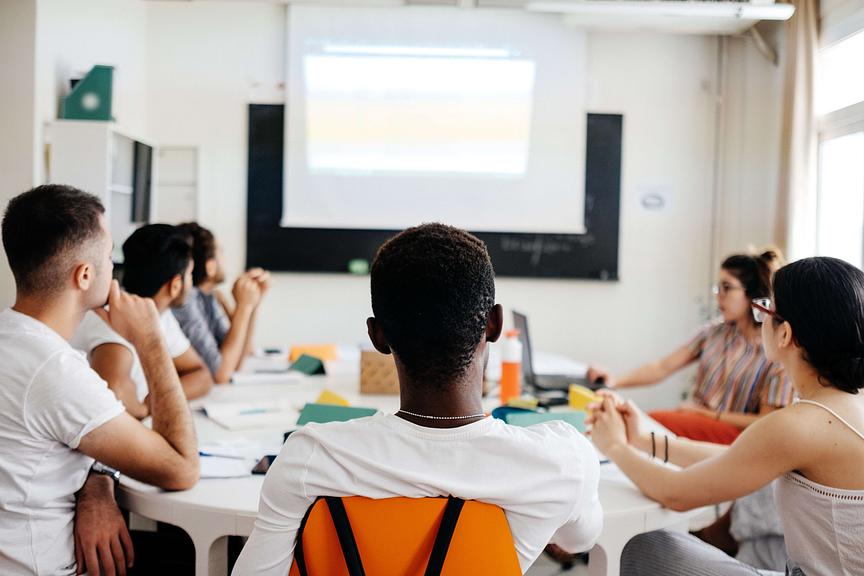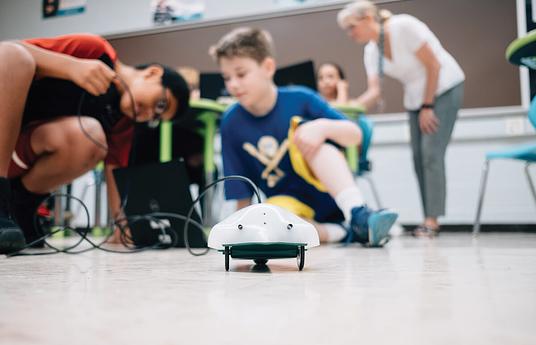Amala was conceived in response to the gap in quality education provision for displaced youth.
We believe that young refugees - as all people - have a right to quality education. Yet, only 24% of refugees around the world have the opportunity to access secondary education and a staggering 3% go to university.
In 2016, Amala Co-founders Mia and Polly were working on a prestigious scholarship programme for UWC (United World Colleges) which admitted refugees to schools around the world to complete their secondary education. They found that for every scholarship place available, hundreds of promising applicants were turned away. The idea of Amala was born: to provide transformational learning programmes that give young refugees a unique opportunity to finish their secondary education and pursue further opportunities. After 3 years of running our short courses, planning, creating and collaborating with a worldwide team, including 150 educators and refugee learners, Amala has now launched the Amala High School Diploma; the first international high school programme that is tailored to young refugees and their host communities. The Diploma Programme launched in Amman, Jordan in June 2020 and a second cohort will start in January 2021. Amala also plans to launch the Diploma Programme in Kakuma Camp, Kenya, later in the year.
Our education
Amala provides education that creates positive change in the lives of learners today, and that opens up opportunities for the future. Our programmes enable learners to develop agency, confidence and competencies such as the ability to create new value, take responsibility, and manage complexity, which young people need to thrive and make positive change in their communities. Our curriculum work is carried out in collaboration with our founding partner school, UWC South East Asia and involves educators and refugee youth from around the world. Our educational model is inspired by the OECD's Education 2030 project.
How it works
We work together with local partner organisations who deliver our programmes where they are. To ensure flexibility for our students, our courses use a blended learning model (60% in person, 40% online), where students meet together with their class and a trained facilitator several times a week, and access learning materials via an online platform in their own time.
In response to Covid-19, Amala has adapted its curricula to be run online - enabling learners to continue their learning, despite the current circumstances.
Our programmes
Amala has developed and launched the first international high school diploma programme for refugee youth. The programme is specifically designed for displaced youth aged 16-25 who are out of school and who are unable to access the national education systems in the countries where they are living. It is a general high school programme, with a focus on innovation and problem-solving, which will enable students to make change in their community and to pursue further opportunities for higher education, work and entrepreneurship. The programme is modular, lasting fifteen months, which includes 10 courses, a guidance counselling programme and a personal interest project. The Amala High School Diploma aims to be a solution that can work in multiple contexts. The programme launched in Amman, Jordan in June 2020 and will expand to Kakuma Camp, Kenya later in the year, and to further locations following that.
“I applied to this programme because I did not get an opportunity to finish my high school. When I left Syria, I was studying for my final exams - but when I came to Jordan, I was not able to join a local school because I had to work to support my brother who has been ill. This is my opportunity - I have been waiting for this!” - Mohammad, one of our selected Amala High School Diploma students.
Courses
Amala also provides courses in areas such as peace-building, maths for change, social entrepreneurship and ethical leadership. Amala courses enable refugee youth to return to learning and develop life skills. To date, 400+ learners have participated in our individual courses in Greece, Kenya, Jordan, Lebanon, Hong Kong, Bangladesh and Trinidad & Tobago.



